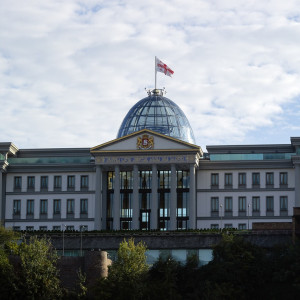Georgia’s Parliament Passes Controversial Legislation Targeting Foreign-Funded Organisations
The recent adoption of Georgia’s controversial Law on Transparency of Foreign Influence has sparked outrage and protests across the country. The legislation, which has been compared to Russia’s “foreign agent” law, requires NGOs and media organizations receiving significant funding from foreign countries to register with the government as “organizations serving the interest of a foreign power.”
Despite weeks of demonstrations involving tens of thousands of people, the bill was approved by a vote of 84-30 in parliament. The use of water cannons and special police units to disperse protesters in Tbilisi has only added fuel to the fire.
Georgian Prime Minister Irakli Kobakhidze defended the law, claiming it is necessary to prevent NGOs from attempting to “organize a revolution,” promote “LGBT propaganda,” and discredit key institutions such as the police, judiciary, and the Georgian Orthodox Church. However, critics argue that the legislation will be used to suppress dissent and criticism of the government.
Amnesty International’s Marie Struthers condemned the Georgian Dream party for pushing through the “harmful law,” stating that it violates international human rights obligations and undermines civil society’s ability to operate freely. She emphasized the importance of independent civil society in protecting human rights and providing checks and balances on government actions.
The parallels between Georgia’s new law and Russia’s “foreign agent” legislation, which has been used to silence human rights organizations, have raised concerns about the future of democracy and freedom of expression in Georgia. As protests continue and international pressure mounts, the government faces growing scrutiny over its commitment to upholding human rights and democratic principles.


